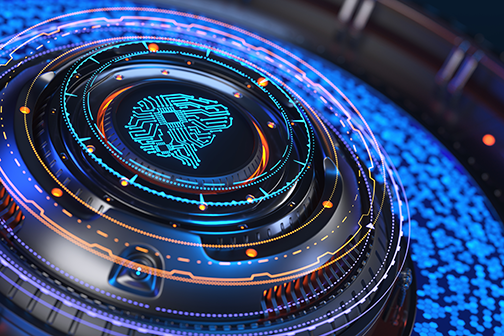
Introduction
This blog highlights AI's transformative impact on RPA, showcasing how integrating AI technologies enhances the capabilities and effectiveness of traditional RPA systems. Robotic Process Automation (RPA) has revolutionized business processes by automating repetitive, rule-based tasks, improving efficiency, and reducing costs. However, traditional RPA is limited by its reliance on structured inputs and predefined logic. Artificial Intelligence (AI) integration is transforming RPA into a more powerful, adaptive, and intelligent tool, heralding a new generation of automation capabilities.
The evolution from traditional RPA to AI-enhanced RPA
Traditionally, RPA focused on automating straightforward, mundane tasks like data entry, invoice processing, and simple transactional processes. These bots mimic human actions by interacting with software applications to execute tasks across various systems. The limitations of this approach lie in its dependence on structured data and the inability to handle exceptions or make decisions beyond pre-set rules. With AI-enhanced RPA, technologies such as machine learning (ML), natural language processing (NLP), and computer vision in RPA systems, a new paradigm of intelligent automation is emerging. AI enables RPA bots to understand and process unstructured data, learn from interactions, and make decisions based on patterns and predictions. This integration allows for a more dynamic and adaptable automation process to handle complex tasks and provide insights into process improvements.
Key Benefits of AI in RPA
Enhanced Data Processing
AI-powered RPA can extract and analyze data from various sources, including emails, PDFs, images, and unstructured text, significantly broadening the scope of automation. This capability allows businesses to automate processes that involve non-standard data formats, such as customer service requests or financial document processing.
Improved Decision Making
With machine learning algorithms, RPA bots can analyze historical data to predict outcomes and make decisions in real-time. This intelligence reduces the need for human intervention and allows for faster, more accurate responses to dynamic business conditions.
Adaptive Learning and Continuous Improvement
AI enables RPA bots to learn from their actions and improve over time. This continuous learning capability means bots can adapt to changing environments and enhance their performance without extensive reprogramming.
Natural Language Interaction
Integrating NLP allows RPA bots to understand and process human language, facilitating more natural interactions with users. This is particularly valuable for automating tasks involving customer support, where understanding and responding to inquiries in natural language is crucial.
Increased Operational Efficiency
AI-enhanced RPA can handle a broader range of tasks with greater accuracy and speed, leading to significant cost savings and operational efficiencies. Businesses can redeploy their human workforce to more strategic and creative tasks, maximizing overall productivity.
Future Prospects and Challenges
The combination of AI and RPA is set to drive significant advancements in automation. As AI technologies evolve, RPA will become more intelligent and autonomous, capable of performing increasingly complex tasks with minimal human oversight. This evolution is expected to lead to innovations such as cognitive automation, where bots perform tasks and understand, learn, and optimize processes independently. However, this integration also presents challenges, such as the need for sophisticated data governance and security measures to protect sensitive information processed by AI-driven RPA systems. Additionally, organizations must invest in upskilling their workforce to manage and work alongside these advanced technologies. In conclusion, the infusion of AI into RPA represents a transformative shift in the automation landscape. By empowering RPA with cognitive capabilities, businesses can achieve higher efficiency, adaptability, and insight, paving the way for a more intelligent and automated future.



